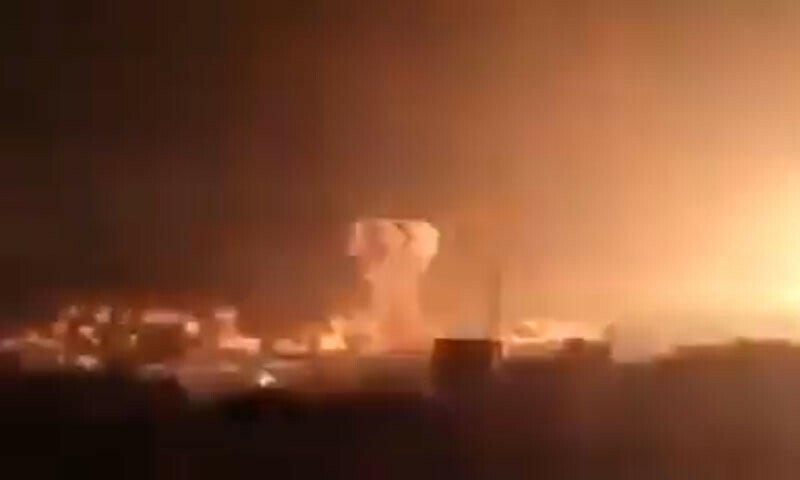Tensions between Pakistan and India escalated dramatically overnight as the Pakistan military shot down two Indian jets in response to a series of Indian airstrikes targeting multiple locations across Pakistan, including Kotli, Bahawalpur, Muridke, Bagh, and Muzaffarabad. The strikes, which occurred after midnight, resulted in civilian casualties and widespread condemnation from Pakistani officials.
According to a statement by state broadcaster PTV News, quoting security sources, the Pakistan Air Force successfully downed two Indian aircraft, with all Pakistani jets reported safe. “Pakistani forces are giving a befitting reply to Indian aggression,” the statement said, emphasizing the military’s readiness to defend the country’s territorial integrity.
Earlier, Inter-Services Public Relations (ISPR) Director General Lt Gen Ahmed Sharif Chaudhry confirmed that three Pakistanis were killed and 12 injured in what he described as “cowardly” missile strikes by India. The attacks targeted civilian areas, including mosques, and were launched from within Indian airspace. “Let me say it unequivocally: Pakistan will respond to this at a time and place of its own choosing. This heinous provocation will not go unanswered,” Lt Gen Chaudhry stated.
Defence Minister Khawaja Asif echoed these sentiments, vowing a strong response. “We will give a far greater response than their own strike,” he told local media, criticizing India for targeting civilians and carrying out attacks from its own airspace. He invited international media to visit the sites of the strikes to expose what he called India’s “lies” about targeting terrorist camps.
Multiple explosions were reported in Azad Jammu and Kashmir, with power outages following the strikes. The attacks come in the wake of a deadly assault in Pahalgam, occupied Kashmir, which killed 26 people, mostly tourists. India has blamed Pakistan for the attack without providing evidence, a claim Islamabad has firmly rejected, calling for a neutral investigation.
In response to the Indian strikes, Pakistan has closed its airspace, and the military has launched retaliatory operations both on the ground and in the air. “Pakistan’s retaliation is underway,” PTV News reported, quoting security sources.
The Indian government confirmed the strikes, stating that “Operation Sindoor” targeted infrastructure in Pakistan and Azad Jammu and Kashmir allegedly linked to attacks against India. India claimed its actions were “focused, measured and non-escalatory,” insisting no Pakistani military facilities were targeted.
International reaction has been swift, with U.S. President Donald Trump calling India’s actions “shameful” and expressing hope for a quick end to hostilities.
Prime Minister Shehbaz Sharif visited the Inter-Services Intelligence (ISI) headquarters earlier in the day for a briefing on the country’s preparedness for any conventional threat. Defence Minister Asif reiterated that Pakistan is ready for any form of aggression, stating, “We are ready for them everywhere at all times.”
Pakistan has also raised the issue at the United Nations Security Council, briefing members on its position regarding the Pahalgam attack and rejecting India’s “unsubstantiated” allegations.
As both countries reinforce their military postures and diplomatic channels remain active, the region faces a period of heightened uncertainty and the risk of further escalation.










